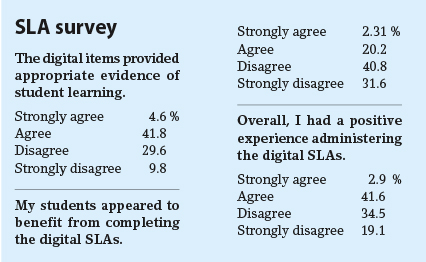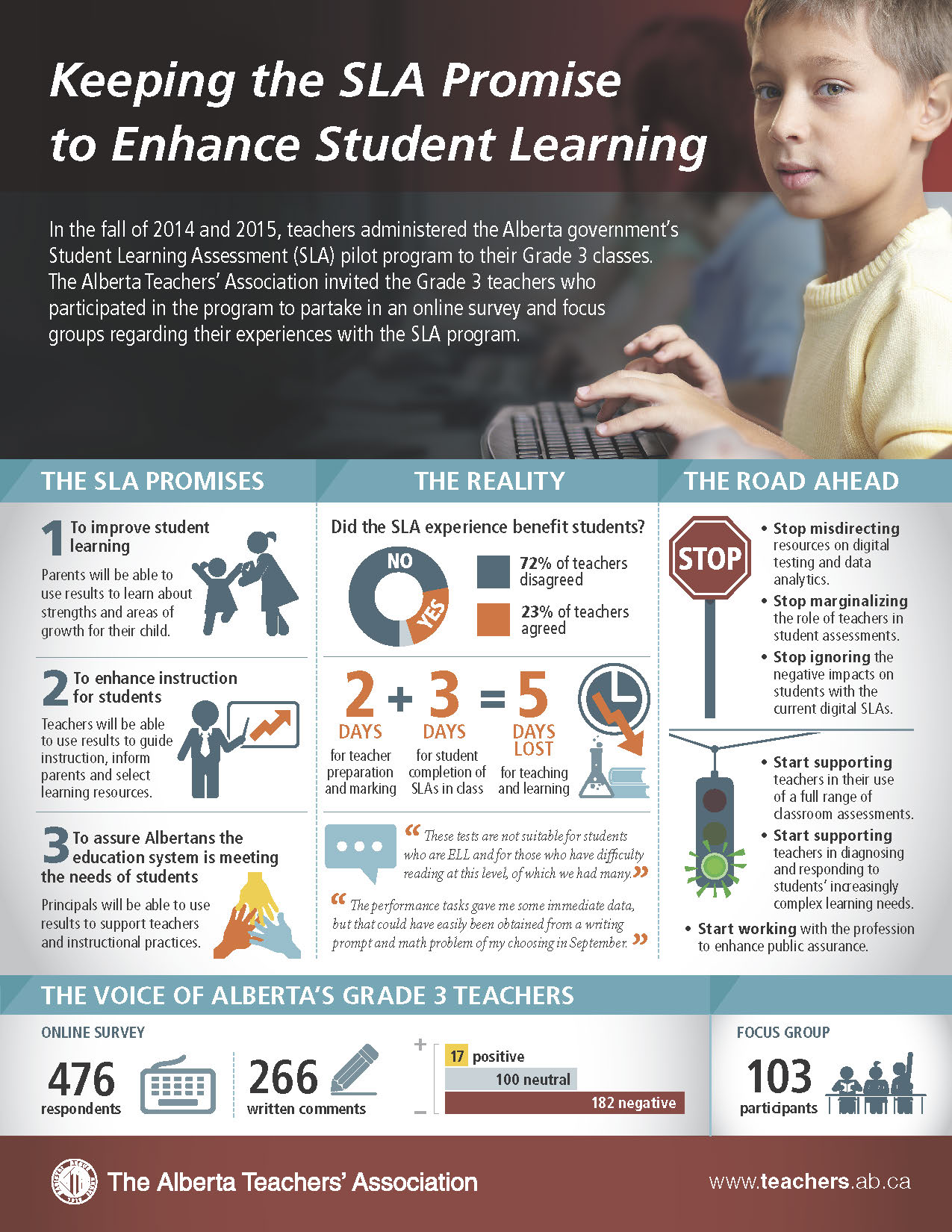Page Content
Teachers who responded to an ATA survey say the SLA program takes a lot of time and provides no new information.
The province needs to revisit its Student Learning Assessment (SLA) program, said Alberta Teachers’ Association president Mark Ramsankar in the wake of survey results showing that teachers view the program as time-consuming and of little benefit to students.
Conducted by the Alberta Teachers’ Association in October and November, following the 2015 delivery of the SLA program, the online survey drew 476 respondents from around the province.
Of those respondents, 72 per cent felt their students hadn’t benefited from completing the digital portion of the assessments while 23 per cent felt their students had benefited.
On the topic of time investment, the survey revealed that, on average, the tests used up two days of teachers’ time for preparation and marking, and three days of class time for student completion.
“While improved last year, the amount of time the SLAs took is hard to justify,” wrote one survey respondent.
The province first implemented the SLA program in the fall of 2014 as a pilot to replace the Grade 3 Provincial Achievement Test. The program drew a wide range of complaints from teachers due to technical problems and the time required for administration and marking. As well, teachers questioned the validity of the assessments and their usefulness. This prompted teachers at the 2015 Annual Representative Assembly to pass a resolution calling on a moratorium to the program until teacher concerns could be addressed.
Instead, the government announced last spring that the 2015 SLAs would be mandatory. It reversed this decision in August, so the program proceeded on a voluntary basis. Even so, its implementation was widespread.
Split into literacy and numeracy components, the tests involved interactive questions delivered online as well as performance tasks.
Further survey results show that respondents were close to split when asked if the digital assessments provided appropriate evidence of student learning, with 46 per cent responding yes and 49 per cent responding no. The majority of respondents, 54 per cent, reported that administering the digital SLAs was not a positive experience, compared to 45 per cent who felt it was positive.
‘Gross misuse’
Survey results aren’t entirely negative. Many teachers provided written comments indicating that the assessments ran more smoothly than they did last year and that students enjoyed the digital questions. However, many said that the questions were too difficult, took too long and were inappropriate for English language learners and that some students struggled with the technology.
A common theme was that the assessments took a great deal of time while providing little to no information that the teachers didn’t already know.
“Although the whole SLA experience was a little less of a nightmare this year compared to the fall of 2014, it still took an astronomical amount of time and for what purpose?” wrote one teacher.
“I strongly believe this is a gross misuse of teachers’ and students’ time as well as energy,” wrote another. “As a professional, I am able to collaborate and create common assessments that are much more child appropriate as well as less time consuming that garner the same results, if not more accurate results.”
The online survey was supplemented by six focus group sessions that attracted 103 participants.
The SLA program has marginalized the role of teachers, and it’s time for it to return to its foundational principles, Ramsankar said.
“Who’s making the decisions regarding SLAs and where is the teacher voice?” he said.
As a result of the survey, the Association is continuing to advocate for a fundamental redesign of the SLA program within a broader approach to public assurance.
“Diagnostic assessments should guide teacher practice and help with programming for students with unique needs,” he said. “We can construct a public assurance model that’s not founded in a high-stakes testing regimen.”
Association officials have voiced their concerns with officials in Alberta Education, and Ramsankar plans to raise the issue in a meeting that he’s in the process of arranging with Education Minister David Eggen. ❚

 SLA Infographic
SLA Infographic
Keeping the SLA Promise to Enhance Student Learning
